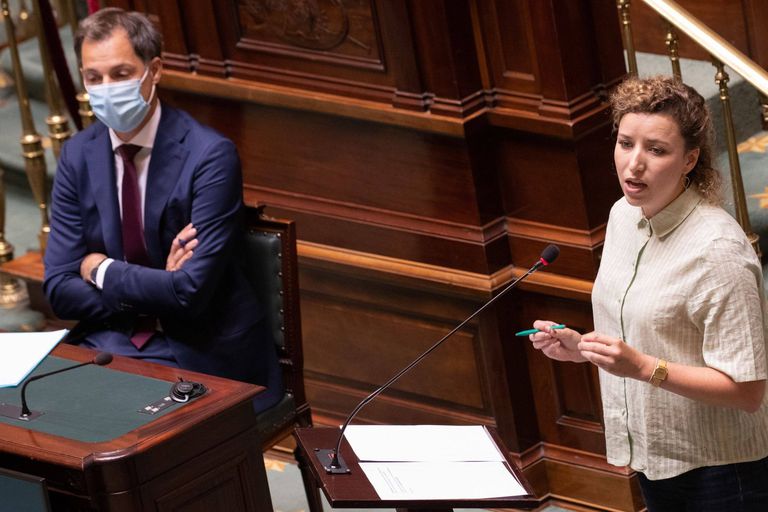One year after the murder of Ilse Uyttersprot in Belgium, a National Action Plan on Gender-based Violence is ready, according to the cabinet of state secretary for Gender equality, Equal opportunity and Diversity, Sarah Schlitz.
Uyttersprot, former mayor of the Flemish municipality of Aalst, was the 13th of 24 victims of feminicide in 2020. This year, the Stop Feminicide blog, which keeps track of how many women are killed by their (ex-)partners, recorded 13 so far.
"Feminicide has no official definition in our country. And without definition, you cannot register the cases," Jessika Soors, spokesperson for Schlitz told De Morgen.
"It is high time that the policy itself put its finger on the pulse and gain insight into the background of the cases and what the moments are when services can intervene," she added.
The most important thing is that the approach is improved and that both the support for victims and the punishment and follow-up of perpetrators become more adequate, according to Soors.
The police zone Brussels-North already regularly visits victims of partner violence. "We want to roll this out nationally: that different services proactively look into if the problem arises, to prevent escalation," she added.
During the different lockdowns in Belgium, helplines saw the number of reports of partner and family violence rise, and the cases turned out to be more severe as well, they said.
Related News
- Fleeing a violent situation is 'essential travel,' says minister
- Violence against women costs EU countries around €289 billion every year
- Increased risk of domestic violence during confinement, study finds
The issue has been addressed over the past year too, as the curfew did not apply to victims of family violence, and police were given tools for risk assessment in a circular from the Public Prosecutor's Office.
Judges and public prosecutors were also trained to recognise offender profiles and the Chamber adopted a resolution with recommendations. Additionally, investments were also made in Family Justice Centres, where victims receive help, according to Soors.
Despite these efforts, however, the 'Solidarité Femmes' organisation noted "a considerable increase in requests for intervention" concerning violence against women, according to director Josiane Corruzzi.
"Calls to the [Francophone] domestic violence 0800/30.300 helpline have increased enormously, and many of the homes that house women victims of violence are full," she told RTBF last week.
"There are also many requests for outpatient psychotherapy," Corruzzi added.
Additionally, if someone reports to the police, the complaint is not always handled well, and what happens to it depends a lot on which police station the victim goes to, according to her.
"There are police stations where it goes well, but sometimes you are not well received. There are public prosecutors' offices where it goes well, but others do not treat the problems seriously," Corruzzi said.
She and her organisation are asking for a harmonised approach. "Concerning the training of officers, all police academies should train all police officers who are going to take up their duties correctly, but currently this is not an obligation."
However, it has now become one for magistrates: from September 2021, all magistrates who take up their duties must be trained in sexual violence against women and domestic violence.
According to Corruzzi, it is important to realise that the issue of domestic violence is not just something that has to be handled by the Justice Department, but also by the Social and Health sectors.
"These are complex and difficult situations that affect the whole family. And the question of dangerousness must be the basis of this partnership [between departments]," she added.
"Partnership is essential to exchange information and find ways to act together to protect victims," Corruzzi said, adding that the Family Justice Centres are creating this, and it is also being worked on in the Namur, Liège and La Louvière.
Schlitz's plan is ready to be adopted by the government in the autumn.
Anyone who is a victim of domestic violence or sexual abuse can contact the toll-free number 1712. The helpline can also be reached via a chat room on the website www.1712.be.

